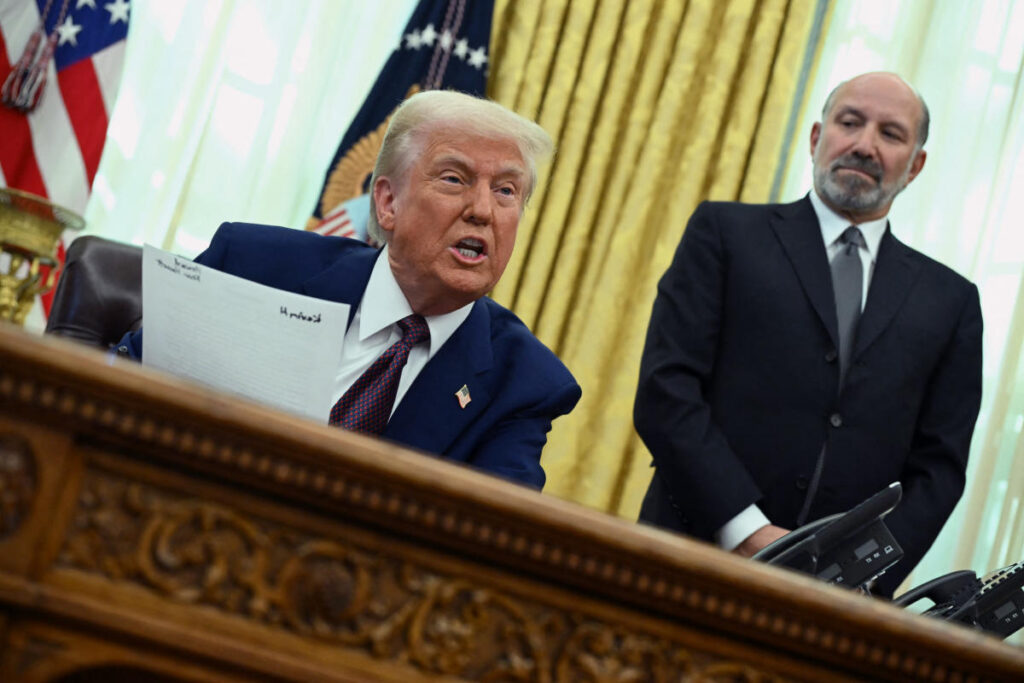President Donald Trump on Thursday signed his plan for reciprocal tariffs but delayed their implementation as his administration launches negotiations on a one-by-one basis with nations that could be impacted.
«The Plan shall ensure comprehensive fairness and balance across the international trading system,» read the memorandum signed by Trump.
The studies of each country could be completed by April 1, incoming Commerce Secretary Howard Lutnick said Thursday while standing at Trump’s side, adding that then «we’ll hand the president the opportunity» to start implementing them as soon as on April 2.
«Reciprocal makes tariffs really fair,» Trump offered Thursday, adding that he didn’t expect any exemptions or waivers and waving away questions about whether the move would raise prices on Americans.
Read more: What are tariffs, and how do they affect you?
The move is likely to quickly set up a flurry of negotiations as countries try to secure an exemption in spite of Trump’s comments.
Up first is India, with Prime Minister Narendra Modi set to visit the White House later this afternoon for a series of meetings. Modi may try to use issues like energy as a means to blunt the tariff impact in his country.
Thursday action came after the president announced new 25% tariffs on steel and aluminum earlier this week and imposed 10% duties on China last week over issues of illegal drugs and migration.
But the reciprocal tariff move, if it’s eventually implemented, is the one that could be the most far-reaching.
Delayed implementation will undoubtedly lower the short-term impacts, especially for markets, with stocks rising Thursday afternoon as it became clear these duties wouldn’t go into effect immediately.
«It’s like forward guidance from the Fed,» quipped Ben Emons, Fed Watch Advisors chief investment officer, in a live appearance on Yahoo Finance Thursday afternoon.
But Philip Luck, a director of the CSIS Economics Program, underlined that businesses have to adapt and plan for what might come into effect, noting, «You can have price effects even if you don’t have tariffs on them.»
Nations from India to Brazil to South Korea have long charged higher average duties on various goods and will clearly be in the middle of coming talks.
Trump’s memo Thursday outlined how non-tariff barriers, such as the VAT, would also be subject to reciprocity.
«For purposes of this United States Policy, we will consider Countries that use the VAT System, which is far more punitive than a Tariff, to be similar to that of a Tariff,» Trump posted to Truth Social on Thursday.
Story Continues


